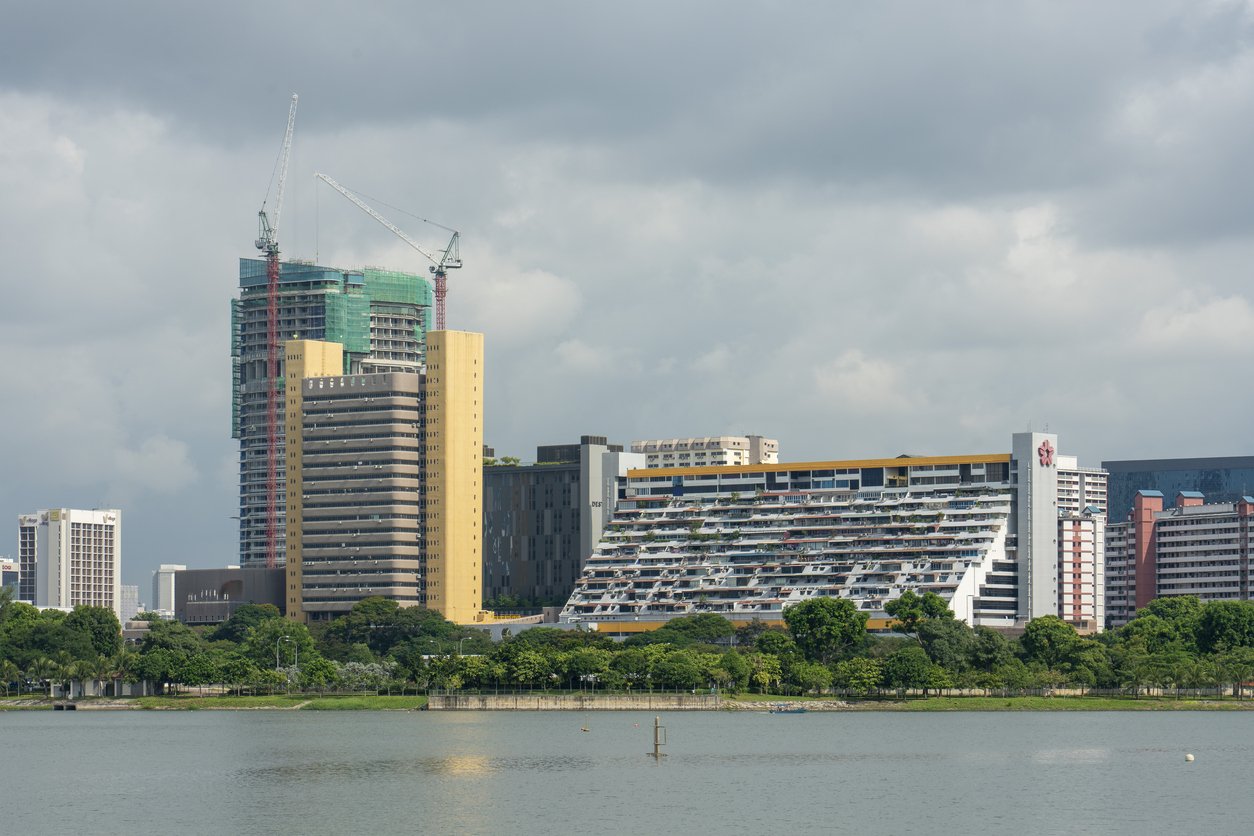Long before the inception of the Building and Construction Authority (BCA), Singaporeans resolved their neighbourly differences through kampong spirit. Which, according to my grandmother, involves situations like nailing the neighbour’s gate shut because their family dog attacked our chickens. That’s why, in this more civilised age, we use the share value system. Here’s how it impacts condo living.
What is share value?
Share value refers to how much of the total condo you own, proportionate to every other owner. This is a crucial aspect of owning a condo unit, especially when the development goes for en bloc in Singapore. The share value of each unit is initially proposed by a property surveyor, hired by the developer. The proposal is sent to the Commissioner Of Buildings (COB), who must accept the proposal before property sales begin. In a residential development, it’s is largely determined by the gross floor area (GFA) of your property. This starts at a share value of 5 for every 50 square metres. So if your GFA is 120 square meters, you’d have a share value of 7.
| GFA (Square meters) | Share Value |
|---|---|
| 50 and below | 5 |
| 51 to 100 | 6 |
| 101 to 150 | 7 |
| 151 to 200 | 8 |
| 201 to 250 | 9 |
| 251 to 300 | 10 |
Overall, if your share value is 7 / 270, that means you own 7 shares out of a maximum 270. There may be some variations, based on factors like facility types. The theory is that, the bigger your floor space, the more occupants you potentially have, and the more of the facilities you use. Granted, this line of reasoning may seem a bit nebulous, but it’s a convenient way to quantify ownership. The share value determines
- How much you pay for condo maintenance
- Your voting rights on estate matters
- En bloc sales proceeds
1. How much you pay for condo maintenance
Once a condo has received its Temporary Occupation Permit (TOP) — and not before — you’ll be charged a maintenance fee based on your unit’s share value. The higher the share value, the higher the fee. The exact maintenance fee will still vary between condos. Besides your share value, the nature of the facilities in the condo will play a big role in determining the cost. Luxury condos, which have features like concierge services and hotel-like pools, can have maintenance fees that range in the thousands every month. As a rule of thumb, most suburban condo units – with a common size of 1,400 square feet – will see a maintenance bill of just over S$1,000 per quarter*. *Many Management Corporations (MCs) collect on a quarterly, not monthly, basis.
2. Your voting rights on estate matters
We can’t just give every condo owner the same number of votes, when it comes to estate matters. Some people pay more for maintenance, and effectively own more of the estate than others. So the elite few with higher ownership, via share value, get more votes. Wow, good thing we don’t run the entire country that way. Apart from having more votes at Annual General Meetings (AGMs), your share value plays a big part during the en bloc process. Under the Land Titles (Strata) Act, an en bloc can only proceed if an 80% majority agrees to it*. But that doesn’t mean 80% of all the owners. Instead, it means that the agreement must be from a group of owners, who collectively own 80% of the share values.

The significance is that a penthouse owner— or a single owner of multiple units — can outvote many other condo owners. However, that doesn’t mean owners of big units always call the shots. You need to consider the proportion of small units to big ones. Here’s an example. Say a development has 105 units, of which 100 units each have a share value of 6. Only five larger units have a share value of 10. As the combined share value of small unit owners to big unit owners is 600 to 50, the owners of the small units will always win a vote (assuming they gang up). The ratio of small to big units varies in each development. Some condos have a more balanced mix, whereas some are dominated by small unit owners (e.g. if there are a lot of shoebox units). *This is increased to 90%, if the development is less than 10 years old. Besides giving you more voting rights during an en bloc, the share value can also affect your sales proceeds.
3. En bloc sale proceeds
There are different ways to divide sales proceeds during an en bloc, but one method is to apportion the sale proceeds by share value. This is where things may take a turn into a not-so-pleasant territory. Consider this scenario: a unit that’s 100 square meters has a share value of 6. So what’s the share value of a unit that’s 200 square meters? If we’re being fair, the share value should be 12, right? But remember, the share value goes up by 1 for every 50 square meters.

Which means a unit that’s 200 square metres has a share value of… 8 (see table above). In addition to this, there’s the fact that two units can have the same share value, but one can be larger than the other. For example, if your unit is 140 square meters, you have a share value of 7. But if the unit across from you is 150 square meters, they have a share value of 7 as well. You can imagine how “happy” those neighbours will be, if the sale proceeds are apportioned strictly by share value. In effect, the bigger your unit is, the worse this deal becomes for you. That’s why owners of bigger units often object to this method of apportionment (and they may be drowned out by a horde of smaller unit owners, if the development has a bigger proportion of small units to big ones).
Does using the share value result in a fair method of apportionment?
Not really. That’s because the share value system was never intended to guide the apportionment of sale proceeds in an en bloc sale. The system was created to determine how much each owner pays for estate maintenance. Using it for the sales process is like using a screwdriver to open canned soup — it could work, but it’s probably going to be messy. That’s why one of the recommendations by the Singapore Institute of Surveyors and Valuers is to use a combination of methods — such as using valuation, strata area and share value to more fairly divide the proceeds. But it all comes down to who wins the negotiations at en bloc proceedings to decide which method of apportionment is used.
What’s your take on using the share value to determine en bloc sale proceeds? Let us know in the comments section below or on our Facebook post.
If you found this article helpful, 99.co recommends What factors are necessary for a possible en bloc or collective sale? and 4 nostalgia-inducing en bloc exercises.
Looking for a property? Find the home of your dreams today on Singapore’s fastest-growing property portal 99.co! If you would like to estimate the potential value of your property, check out 99.co’s Property Value Tool for free. Meanwhile, if you have an interesting property-related story to share with us, drop us a message here — and we’ll review it and get back to you.
Frequently asked questions
What is the share value of a condo?
The share value represents how much of the condo you own, in relation to every other owner in the development.
Who determines the share value?
The share value of each unit is initially proposed by a property surveyor, hired by the developer. The proposal is sent to the Commissioner Of Buildings (COB), who must accept the proposal before property sales begin.
How is the share value determined?
The share value is determined based on the gross floor area and perceived usage of the condo facilities. The premise is that the bigger your floor space is, the more occupants you have, leading to higher usage of the facilities. Starting with a share value of 5, the share value increases by 1 for every 50 square metres. So a 140 sqm unit has a share value of 7.
The post What is share value, and how does it affect en bloc sales proceeds? appeared first on 99.co.

